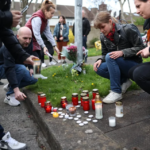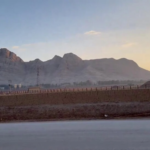Ireland’s housing crisis is getting worse and the posh boys who run Fine Gael do not care. They worry only about their PR image.
Last year, Environment Minister Simon Coveney said that his ‘target’ was to end the use of hotels as emergency accommodation for homeless families by July.
But today the number of families in Dublin who are living in emergency accommodation for over two years has doubled.
The new Minister, Eoghan Murphy, claims that his ‘move-on option’ is family hubs. The signs are, however, that these temporary solutions will become permanent. The ‘hubs’ are set to become the new 21st century Poor Law institutions.
But there are some who are benefitting from the crisis. Here are the winners:
Vulture Funds: These have bought up €200 billion of Irish distressed debt, including 90,000 mortgages. As property prices rise, they increase the rate of evictions. Fine Gael invited them here by showing them tax ‘loopholes’. In some cases, the funds paid only €250 in tax on vast profits.
Irish property speculators: There are now 4,000 new property millionaires compared to five years ago.
Banks: They were allowed to charge higher interest rates on mortgages to recover losses. In Britain, the interest rate on a variable mortgage is just 1 percent. In Ireland it is 3 percent. That small difference brought millions into the banks.
Land hoarders: They just sit and watch. Fine Gael has refused to bring in a automatic vacant site levy. Instead, a 3 percent levy will only be introduced in 2019 – and it will be dependent on a decision of local authority officials.
There is one way to solve the housing crisis.
If the government embarked on a major council house building programme and used public land to build these cheaper, the crisis would end.
They could hire unemployed builders; borrow at lower interest levels; and stop paying out vast sums each year to private landlords.
But the PR people have a nice ready-made excuse. Every time there is a proposal for more council housing, the spin doctors come back with talk of ‘social mix’. They cannot, they claim, have all these poor people living together – it will just lead to trouble.
This argument is a smear against the many people who grew up on council estates. When, for example, have there been complaints about the lack of social mix in Howth or Sutton?
It assumes that it is not possible to build high quality public housing with full amenities that bring middle and low income people together. Vienne in south eastern France, however, shows this is perfectly possible.
The city’s income restrictions for subsidized units only apply when families first move in. Residents are never required to move out, even if household income levels increase in the following years. This arrangement results in a substantial number of moderate-income residents living in subsidized housing, and a mixing together of residents with different income levels.
One example that is perfectly fitted for Ireland is the Kabelwerk housing project in Vienna, Austria. Built on an old industrial site spanning about 7 hectares, the Kabelwerk social housing project has a total of 1,004 housing units spread across various housing types including subsidized rental housing, subsidized owner-occupied homes, apartments for refugees, and student housing. The development includes amenities such as shops, restaurants, a kindergarten, meeting rooms, and a rooftop pool which enhance the quality of life for the residents.
There is no reason why these projects could not be built in Ireland. The only obstacle is Fine Gael ideology – and snobbery.












